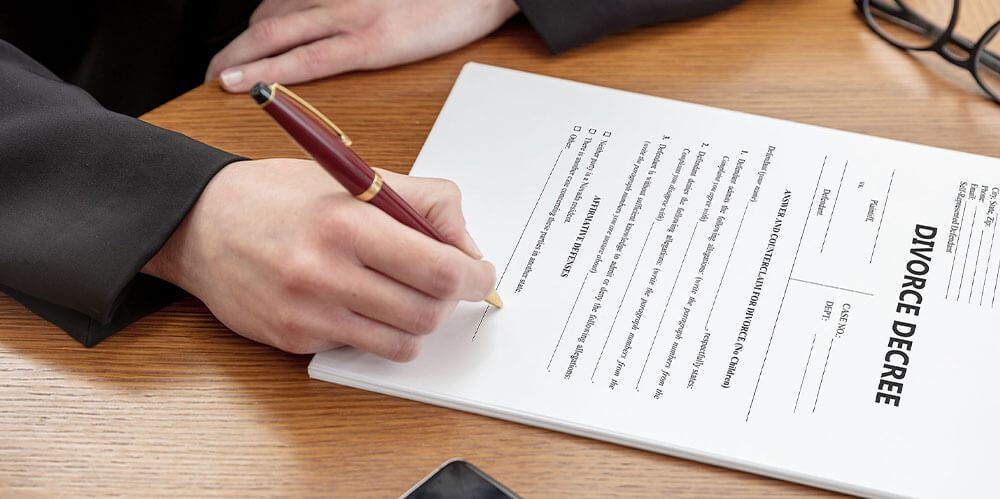Divorce Where One Party Refuses – What If They Won’t Sign
When you first got married, divorce was never talked about, never planned for, and wasn’t even kept as an option of last resort. This is why, in some divorce cases, one party wants to continue the marriage, hoping they can rekindle that spark. So, what happens in a divorce where one party refuses?
Getting a divorce isn’t an easy decision. But, if you’ve exhausted all options, there are steps you can take if your spouse refuses to sign the divorce papers. The compassionate, expert divorce attorneys at Dowden & Smith are here to help you through this trying time. Contact our office today and schedule a free consultation to discuss your case.
 Does My Spouse Need to Sign the Divorce Papers?
Does My Spouse Need to Sign the Divorce Papers?
The short answer is no. Your spouse does not need to sign the divorce papers to finalize your divorce.
You can still proceed with a divorce if one party refuses to sign, but having your spouse sign the papers makes the process easier. If you’re in this situation, having an experienced lawyer on your side is your best chance to get your divorce finalized. Otherwise, you may end up separated but still legally married, waiting on your spouse to come around to signing the papers.
What To Do If Your Spouse Refuses to Get Divorced
If your spouse refuses to get divorced, you should contact an attorney immediately to discuss your options. As long as the requirements for divorce in Louisiana are met, the court may grant a divorce even if one person refuses to sign the divorce papers. A judge can grant two types of divorces depending on the legal grounds: a no-fault divorce or a fault-based divorce.
A no-fault divorce, meaning no single party is responsible, can be granted if you and your spouse have lived separately for 180 days continuously, and you do not have a child under 18 together. Or, if you do have a child under 18 together, you would need to live separately for 365 days.
A judge can grant a fault-based divorce if your spouse has:
- Committed adultery
- Been convicted of a felony and has been sentenced to death or imprisonment at hard labor
- Sexually or physically abused you or your child/step-child during the marriage
- Had a criminal or civil protective order issued against them to protect you or your child/step-child from abuse
To find out your options for a divorce where one party refuses, contact the divorce attorneys at Dowden & Smith. Whether you’re a member of the military or a civilian, our team has the know-how and compassion to help you with your situation. Call us today at 337-238-2800 and schedule a free consultation.
[Related: What are the Grounds for Divorce in Louisiana?]
 Should I Consult an Attorney About Divorce If I’m Not in Contact with My Spouse?
Should I Consult an Attorney About Divorce If I’m Not in Contact with My Spouse?
In some cases, where a spouse refuses to sign divorce papers, the couples may have separated and lost contact information over the years. When this happens, it’s essential to talk to a qualified, experienced divorce attorney.
When you work with an attorney for your divorce where your spouse refuses, the attorney can perform a public records search in an attempt to find your separated spouse and ask them to sign the papers. The court may also appoint a curator ad hoc, whose duty is to attempt to locate your spouse and notify them of the divorce proceedings.
Divorces are extremely trying, and a divorce where one party refuses can be especially overwhelming. You may feel trapped, but the team at Dowden & Smith is here to help. Call us today, and we’ll give you honest and compassionate legal advice.


